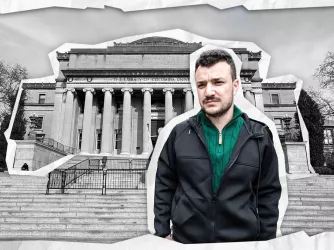Table of Contents
University of Georgia’s Broken Promises
(Brian Mink is a sophomore in International Affairs and History at the University of Georgia and a 2008 FIRE Summer Intern.)
From a young age, we're taught the value of a promise. We're taught that acting the same way in private that we act in public constitutes integrity. We're taught that neglecting our duty damages our reputation, sometimes irrevocably.
Administrators at the University of Georgia, no doubt, are well aware of these truisms; in fact, they've exerted no small amount of energy (or money) to preach them to students. One need only board a University bus to see what I mean: "You Promised," proclaim numerous posters, referring in this case to students' oath to uphold the University's Academic Honesty Policy.
While exalting honesty and integrity with one hand, however, that same University is playing duplicitous politics with the other.
To incoming students and professors, UGA offers the following unequivocal defense of our nation's founding principles in the "UGA Policy on Freedom of Expression": "No rights are more highly regarded at the University of Georgia than the First Amendment guarantees of freedom of speech, freedom of expression, and the right to assemble peaceably."
But to those who choose to stay on campus, the University offers a significantly different set of policies which, ironically, often are printed immediately beneath the First Amendment guarantee. Consider the vague and overbroad "Non-Discrimination and Anti-Harassment Policy." This policy forbids "a pattern of conduct, which can be subtle in nature, that has sexual overtones ... and has the effect of creating discomfort" (emphasis added). It's a good thing William Shakespeare and Sigmund Freud never went to UGA, because the subtle sexual overtones of their speech might well have created illegal discomfort! If you're keeping score at home, add "the right to be comfortable" to the list of ideals UGA favors over the First Amendment.
The contradictions get deeper still. After hailing First Amendment freedoms as paramount to all other rights and simultaneously enforcing a policy which subordinates free speech to the privileges of inoffensiveness and comfort, the University lets this slip from the mouth of its top attorney. The Red & Black, UGA's student newspaper, printed the following in April:
[Stephen Shewmaker, Executive Director for the University's Office of Legal Affairs] said sexual harassment must be pervasive, severe, unwanted and persistent in the legal world.
"I can offend you, but it's not illegal," he said (emphasis added).
Of course, Shewmaker is absolutely correct that the legal threshold for harassment rises well above mere offensiveness; unfortunately, the University's policies—which he enforces—do not recognize much, if any, distinction between the two.
The inconsistencies between UGA's public statements praising the First Amendment and its policies undermining free speech are confounding and unacceptable, at best; at worst, they are downright dishonest. The fact that the University continues to maintain unconstitutional policies in its manuals, despite clear evidence that its top legal minds know better, casts a pall over any illusion of honesty or integrity the administration might wish to claim.
The consequence of such unconstitutional policies is not to silence the intolerant or oppressive, as some may think. Rather, vague and overbroad policies, and the fear of arbitrary enforcement that results from their very existence, inevitably lead to a chilling effect on all student and faculty speech that often prevents well-intended individuals from expressing valid political viewpoints.
Is this the hallmark of a community in which "No rights are more highly regarded ... than the First Amendment guarantees" (emphasis added)? I think not.
Perhaps University administrators should take a ride on their own buses and remember what they demand of their students: honesty. At UGA and elsewhere, authors of speech codes disguised as anti-harassment policies need to remember their obligations, both legal and moral, under the First Amendment, and fulfill them consistently, not just when it's convenient. And if they don't, it's our responsibility as students to remind them that they promised free speech to their incoming students.
They promised.
Recent Articles
FIRE’s award-winning Newsdesk covers the free speech news you need to stay informed.

Navigating the Kafkaesque nightmare of Columbia's Office of Institutional Equity

A picture is worth a thousand words — unless a college district bans it

Intimidating abridgments and political stunts — First Amendment News 461
